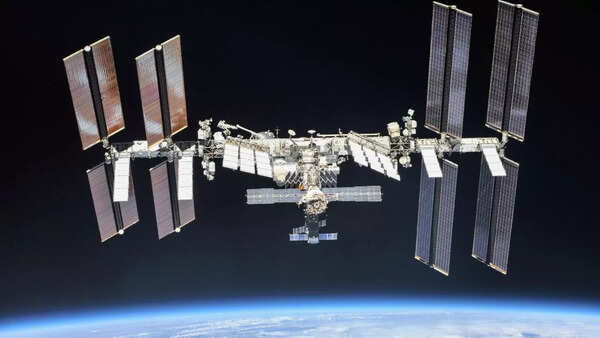Elon Musk, the CEO of SpaceX, has reignited the debate surrounding the future of space exploration by advocating for the retirement of the International Space Station (ISS). This statement comes after President Donald Trump’s tax bill allocated $1.25 billion to the ISS, prompting Musk to declare, "It’s time to retire the Space Station and focus on Mars.”
The SpaceX CEO's stance has drawn both support and criticism, with proponents backing his forward-thinking vision and others defending the ISS's continued importance in scientific research and international collaboration. The tax bill also earmarked $325 million for a safe deorbit process by 2030, signaling the eventual decommissioning of the station.
Musk has been a vocal critic of the ISS, citing its aging infrastructure and the high costs associated with its maintenance. He argues that the station's capabilities are now limited, and the risks associated with its upkeep outweigh its scientific contributions. Many of the ISS modules are over two decades old and were not initially designed for such extended operation.
Musk believes that continued investment in the ISS diverts crucial resources from more ambitious projects, such as crewed missions to Mars. He views Mars colonization as an essential step for the long-term survival of humanity and insists that funding should be prioritized accordingly.

NASA has acknowledged the finite lifespan of the ISS, recognizing that several critical systems are nearing the end of their operational capacity. To address this, NASA awarded SpaceX an $843 million contract to develop a U.S. Deorbit Vehicle, designed to guide the ISS through a controlled descent back to Earth around 2030. The tax bill's allocation of $325 million for deorbit operations further solidifies this timeline.
While Musk supports the eventual deorbiting of the ISS, he suggests accelerating the process to free up funds for next-generation space missions.
Musk’s comments have triggered a wide range of reactions. Supporters contend that his focus on Mars is both visionary and practical, given the rapid advancements in private space technology. They argue that the ISS has already provided significant value, and it is time to invest in the future of space exploration.
However, critics caution that decommissioning the ISS prematurely could impede vital microgravity research, space medicine experiments, and international collaborations that depend on the platform. Many advocate for a gradual transition, rather than an abrupt shutdown, as a more prudent approach.
Newer articles
Older articles
 Daren Sammy Fined, Handed Demerit Point for Umpire Criticism After Test Match Comments
Daren Sammy Fined, Handed Demerit Point for Umpire Criticism After Test Match Comments
 Gavaskar Calls for Yadav's Inclusion, Questions Middle Order After India's Test Defeat
Gavaskar Calls for Yadav's Inclusion, Questions Middle Order After India's Test Defeat
 Decoding Your Health: Spotting 5 Prediabetes Warning Signs Before a Blood Test
Decoding Your Health: Spotting 5 Prediabetes Warning Signs Before a Blood Test
 X Corp. Cracks Down: Half a Million Indian Accounts Suspended for Policy Breaches
X Corp. Cracks Down: Half a Million Indian Accounts Suspended for Policy Breaches
 Headline:
Early Warning Signs: 5 Heart Attack Symptoms to Watch Out For Weeks in Advance
Headline:
Early Warning Signs: 5 Heart Attack Symptoms to Watch Out For Weeks in Advance
 Facial Icing: Benefits, Risks, and Safe Application of This Viral Beauty Trend
Facial Icing: Benefits, Risks, and Safe Application of This Viral Beauty Trend
 Chess Sensation Praggnanandhaa Joins Magnus Carlsen's Team Liquid for Esports World Cup
Chess Sensation Praggnanandhaa Joins Magnus Carlsen's Team Liquid for Esports World Cup
 Mastering JPG to PDF Conversion: A Graphic Designer's Guide to Quality and Efficiency
Mastering JPG to PDF Conversion: A Graphic Designer's Guide to Quality and Efficiency
 MI New York's Tajinder Dhillon Shines: From IPL Benchwarmer to MLC Star
MI New York's Tajinder Dhillon Shines: From IPL Benchwarmer to MLC Star
 Akmal Blasts PCB's Interim Coach Choice: Ex-Cricketer Questions Logic Behind Mahmood Appointment
Akmal Blasts PCB's Interim Coach Choice: Ex-Cricketer Questions Logic Behind Mahmood Appointment